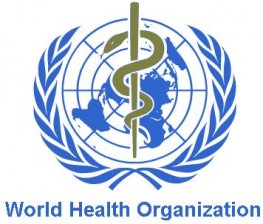
WHO, which will observe World Blood Donor Day on Friday, said self-sufficiency in having safe blood products should be based on “100 percent voluntary and unpaid blood donations.”
“On the 10th anniversary of World Blood Donor Day, I encourage all countries in the Region to support national blood systems in building stable bases of voluntary, unpaid donors who regularly give blood,” said Shin Young-soo, WHO regional director for the Western Pacific.
“Demand for blood continues to grow faster than supply, a fact that makes safe blood more precious than ever and today’s message even more urgent,” he added.
The WHO said providing safe and adequate blood through well-organized national blood systems should be an integral part of every country’s national health-care policy.
“Without these, the infrastructure and the human and financial resources needed to ensure the availability of sufficient supplies of safe blood and blood products are unlikely to be provided,” the WHO said.
“Transfusions of blood and blood products help save millions of lives every year. A single unit of donated blood can save up to three lives. Blood transfusions can help patients suffering from life-threatening conditions live a longer and higher quality life,” it added.
The WHO said a stable base of regular, voluntary, unpaid donors is “the cornerstone” of a safe, adequate and reliable blood supply.
“Regular voluntary donors are the safest source of blood because they are motivated by altruism and a sense of moral duty or social responsibility. The only reward they receive is personal satisfaction, self-esteem and pride,” the WHO said.
“On the other hand, paid donors are vulnerable to exploitation and commercialization of the human body, as they are usually poor and become paid donors due to economic difficulties,” it added.
It also said “any form of exploitation” of blood donors–including payment for blood, coercion and the collection of blood from institutionalized or marginalized communities, such as prisoners–diminishes the true value of blood donation.
The WHO said its goal for all countries is to obtain all their blood supplies from 100 percent voluntary unpaid donors by 2020.
“Globally, 62 countries obtain all their blood supplies from voluntary unpaid donors. However, 40 countries collect less than 25 percent of their blood supplies from voluntary unpaid blood donors,” the agency said.
“A significant proportion of the blood supply in these counties remains dependent on family/replacement and paid blood donors,” it added.
The WHO said that, in the Western Pacific Region, Australia, Brunei Darussalam, Cook Islands, Japan, Malaysia, New Zealand, Niue, the Republic of Korea, Singapore, Tokelau and Tuvalu have all achieved 100 percent voluntary unpaid blood donation.
The agency also said that all blood donations should undergo mandatory screening for HIV, hepatitis B and C and syphilis prior to the release of blood and blood components, such as cell concentrates, plasma, and cryoprecipitate and platelet concentrates for clinical or manufacturing use.